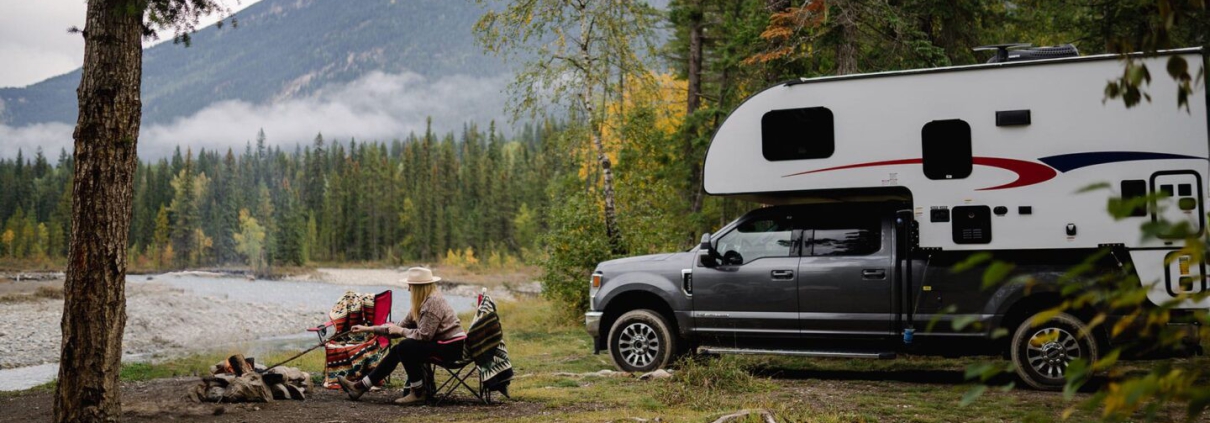RV Starting Battery Replacement: Should You Switch to Lithium?
For RV owners, few things are more frustrating than turning the ignition and hearing a faint click—or nothing at all. A dead starting battery can bring your entire trip to a halt. Whether you’re parked in a remote campground or preparing for a weekend getaway, a reliable starting battery is essential for every recreational vehicle (RV).
Traditionally, most RVs rely on lead-acid batteries for engine ignition. However, as lithium battery technology evolves, a growing number of RV enthusiasts and fleet operators are asking:
“Can I use a lithium battery as my RV starting battery?”
This article explores everything you need to know about RV starting batteries—from how they work, how they differ from deep-cycle batteries, and whether lithium is a smart upgrade for engine cranking.
What Is an RV Starting Battery?
An RV starting battery—also known as a cranking battery—is specifically designed to deliver a short burst of high current to start the RV’s engine. Once the engine is running, the alternator takes over and recharges the battery.
Key characteristics of starting batteries include:
- High Cold Cranking Amps (CCA): The ability to start the engine in cold weather
- Thin plates and large surface area: For maximum current delivery
- Not designed for deep discharge: Frequent depletion will damage the battery
It’s important to understand that starting batteries are fundamentally different from deep-cycle batteries, which are built to provide a steady flow of current over extended periods—like powering lights, appliances, and onboard electronics when the RV is stationary.
Starting Battery vs. Deep Cycle Battery: Know the Difference
Many RVs have dual battery systems:
- Starting Battery: Powers the engine ignition
- House (Deep Cycle) Battery: Powers the living quarters (fridge, lights, outlets, etc.)
Using the wrong type of battery in the wrong application can lead to poor performance and premature failure. For example, using a deep-cycle battery for starting may not deliver enough cranking power. Conversely, using a starter battery for powering your cabin electronics can lead to early depletion.
Some battery models advertise “dual purpose” functionality, but true optimization comes from using batteries specifically designed for each role.
Can Lithium Batteries Be Used as RV Starting Batteries?
The short answer: Yes—but with the right specifications.
In the past, lithium iron phosphate (LiFePO₄) batteries were primarily used as deep-cycle batteries due to their high energy density, long lifespan, and stable discharge. However, early models lacked the instantaneous current output required for starting large engines.
That’s changing.
Modern lithium battery designs—particularly those with advanced battery management systems (BMS) and high-discharge configurations—can now deliver exceptional cranking power comparable to or exceeding that of traditional lead-acid batteries.
To use a lithium battery as a starting battery, it must support:
- High-discharge rates (e.g., >400CCA equivalent)
- Instant voltage stability under load
- Built-in protection for overcurrent, low temp, and short circuits
Why Switch from Lead-Acid to Lithium for Starting?
Here’s how lithium batteries stack up against traditional lead-acid starting batteries:
| Feature | Lead-Acid Battery | Lithium Starting Battery |
| CCA performance | Good | Excellent (with proper design) |
| Weight | Heavy | ~50% lighter |
| Lifespan | 2–4 years | 5–10+ years |
| Maintenance | Requires regular checks | Maintenance-free |
| Performance in cold | Degrades significantly | Maintains power (with warm-up circuit) |
| Mounting flexibility | Limited (upright only) | Flexible (any orientation) |
| Recharge speed | Slow | Fast |
While lithium starting batteries often come at a higher upfront cost, their longer life, reduced weight, and reliable performance offer better long-term value—especially for full-time RVers, boondockers, or those traveling in cold climates.
Signs It’s Time to Replace Your RV Starting Battery
Wondering if your RV starting battery needs replacing? Watch for these warning signs:
- Engine cranks slowly or fails to start
- Headlights dim when engine is off
- Battery won’t hold charge overnight
- You’ve jump-started the RV more than once recently
- The battery is over 3–4 years old (lead-acid)
If your starting battery is reaching end-of-life, it’s a good opportunity to consider switching to lithium—especially if you’re already running lithium in your house battery system.
What to Look for in a Lithium RV Starting Battery
If you’re in the market for a lithium battery to replace your RV’s starter battery, here’s what to consider:
- High Cranking Capability: Minimum 400–600 CCA equivalent
- Temperature Tolerance: Can function in cold starts
- Built-in BMS: For safe current control and protection
- Drop-in Compatibility: Same size, voltage, and terminal configuration as your original battery
- Durability: Vibration resistance, sealed case, and IP-rated construction
A Smart Option: LEOCH 12V LiFeLi Battery
One lithium battery that meets these demanding RV starter requirements is the LEOCH 12V LiFeLi Battery. Engineered for applications that demand both high power output and long life, this battery offers:
- High-rate discharge ideal for engine cranking
- Safe, stable LiFePO₄ chemistry
- Compact, lightweight design
- Built-in BMS with overcurrent and low-temperature protection
- Maintenance-free operation, even after months of non-use
- Suitable for RVs, boats, motorcycles, and more
Whether you’re replacing a failing lead-acid battery or upgrading for better reliability, this model delivers the peace of mind RV owners expect when hitting the open road.
Is a Lithium Starting Battery Right for You?
You should consider upgrading to a lithium starting battery if you:
✅ Frequently travel off-grid or in cold environments
✅ Want a lightweight, zero-maintenance option
✅ Are tired of replacing lead-acid batteries every few seasons
✅ Already use lithium for your house battery and want system consistency
✅ Value fast charging and minimal downtime
However, if your RV usage is infrequent and your current battery is still functional, you might hold off until replacement is necessary. But once that time comes, lithium deserves serious consideration.
Final Thoughts
The starting battery is the unsung hero of your RV experience—reliable, powerful, and critical when you need it most. While lead-acid has long been the default, lithium batteries are proving to be a smarter, more durable alternative.
As long as you choose a model designed for cranking performance—like the LEOCH 12V LiFeLi Battery—you can enjoy peace of mind, longer service life, and better performance across the board.
So the next time your RV fails to start, don’t just replace the battery. Upgrade it.


